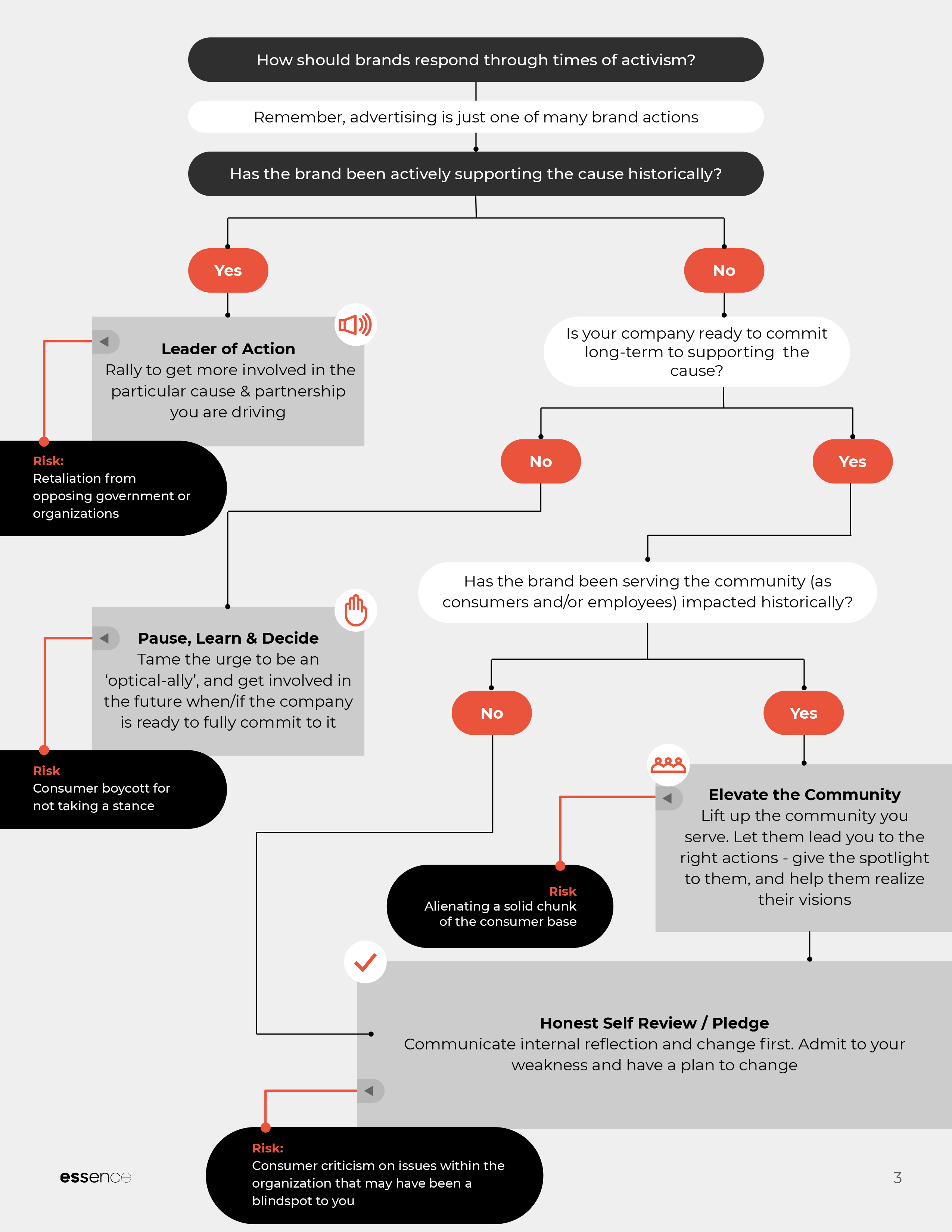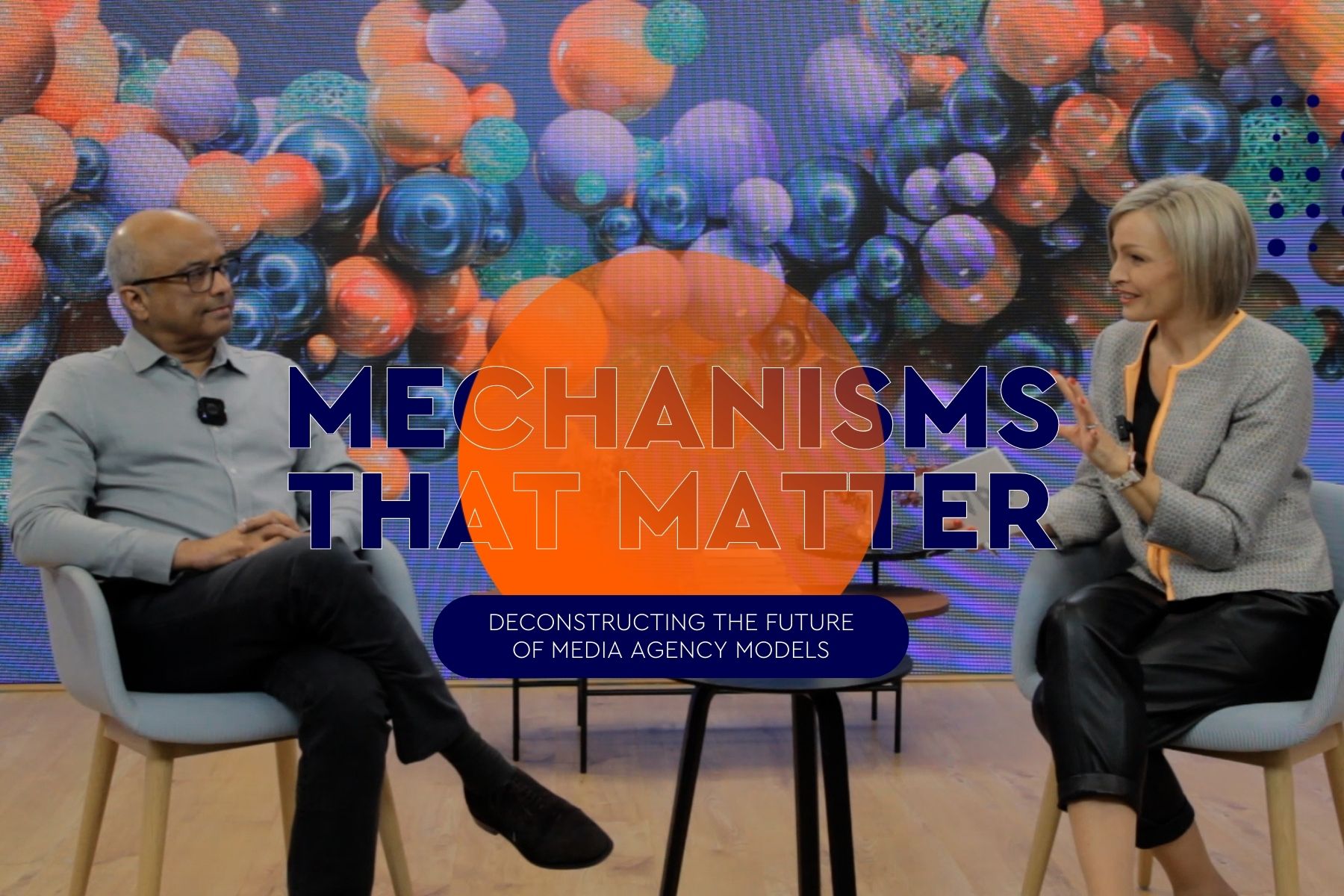
Brands in times of activism
Before you act, consider how your historical actions, company values and existing audience align with the cause at hand
It is a fairly modern idea that brands have a role to play in times of sociocultural crisis. Companies have only recently evolved into seemingly self-aware organisms with character and a point of view. As a result, consumers now see brands as a reflection of their own identities and values.
The fundamental contract between a brand and its customers now goes beyond the transactional exchange of goods and services. By initiating a relationship with their customers, brands encourage loyalty and enhance profitability, but this brings with it a new responsibility. Consumers expect a brand to live up to its ideals.
If you stand up, you’ll be counted
People are quick to spot hypocrisy. If, for instance, a brand shows support for a cause – such as Black Lives Matter, for example, through black-backdropped sans serif declarations on social media – but fails to address its own internal shortcomings, the move can look like virtue signalling. When a brand makes a statement during a crisis, it is choosing to put itself under scrutiny from consumers, who will look for actions that support the statements.
But actions need to be thought through. Any action without clarity can be self-sabotaging, resulting in social media storms, advertiser pull-outs and immediate stock drops. When action is misaligned with a brand’s historical activity, it can appear insincere. As such, the brands best placed to speak out during a crisis are those who have nurtured relationships with communities in need by making long-term commitments, taking marketing risks and offering dedicated products.
Don’t jump on the bandwagon
That said, brands without a track record can, through introspection, find ways to support a movement. Before determining how to act, brands must first understand the different viewpoints and question whether they should act at all. When deciding how to respond, each brand should consider how its historical actions, company values and existing audience align with the cause at hand.
In a world where the brand-consumer relationship has become more of a dialogue than a broadcast, brands must do the work to understand what actions (internal and public) best represent its values and its customers’ values. This is especially important in times when consumer activism is heightened. As we saw during the most recent chapter in the Black Lives Matter movement, not all response was met with praise. While brands often feel the pressure or the desire to react immediately, it is crucial to reflect on the best response first.
There is no one-size-fits-all answer
We have identified four main paths that brands can take in response to any specific cause.
- Leader of Action
- Pause, Learn & Decide
- Elevate the Community
- Honest Self Review / Pledge
But the key to determining which of these roles is the best fit is doing thorough homework. Make sure you know what your brand really has to offer.

published on
19 August 2020
Category
More in Communications

Mechanisms that Matter – How India is fuelling growth for global brands
CVL Srinivas tells Anna Hickey how WPP Open is fuelling a testbed for new working models, innovation, and automation.

Media in India: the future is now
Brands pursuing the Indian market must focus on personalised experiences and data-driven strategies

Mechanisms that Matter – Inside our partnership with Google
Richard Hartell, WPP’s Global Client Lead for Google and CEO at Media Futures Group, talks to Anna Hickey

